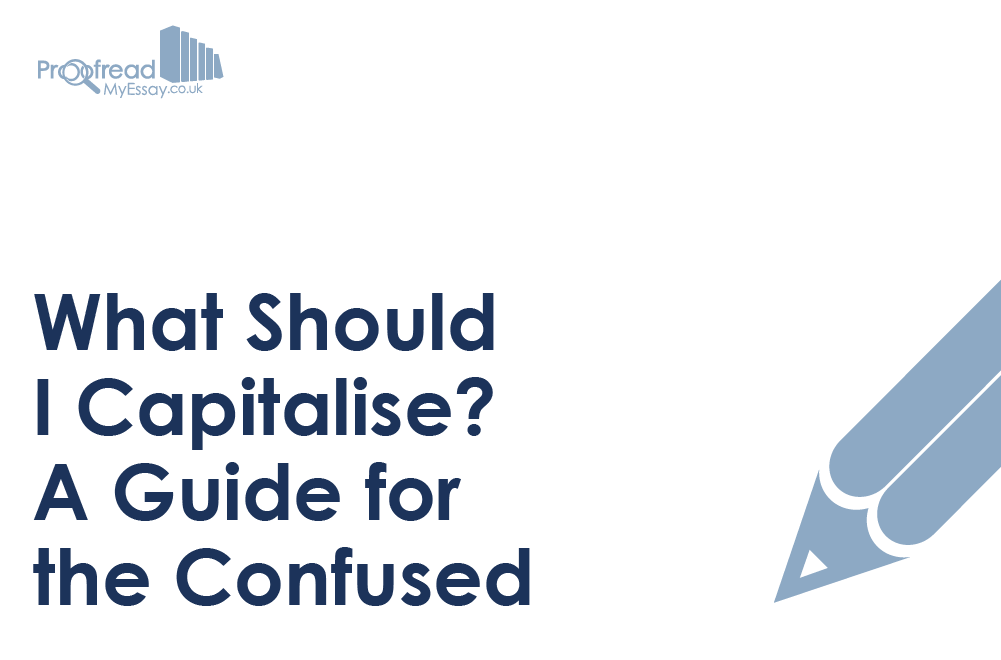At Proofed, a common problem we see in writing is incorrect or inconsistent capitalisation. As such, to help you avoid errors, we have put together this quick guide to when (and when not) to capitalise words in your writing.
What to Capitalise
As well as the first letter of the first word in a sentence, make sure to capitalise proper nouns in your work. These words name a unique person or thing. As such, words you will typically need to capitalise in your writing include:
- People’s names (e.g. Florence, David, Musa, Fatima)
- Roles or titles used alongside a name (e.g. ‘Queen Elizabeth II’ or ‘Professor Davies’, since these are specific people, but ‘a queen of England’ and ‘a professor of neuroscience’)
- Names of places, cities, towns, locations, and the people/languages from them (e.g. America, Chicago, Italy, Italian)
- Organisations, companies, institutions, etc. (e.g. Catholicism)
- Products and brand names (e.g. Colgate, but not ‘toothpaste’)
- Special dates and periods (e.g. Christmas Eve, the Bronze Age)
- Key historical events (e.g. World War II, the Boston Tea Party)
- Names of laws and official documents (e.g. the Bill of Rights)
- Certain religious terms (e.g. the Lord, Allah, the Holy Trinity, God)
- Names of ships or aircraft (e.g. the Enola Gay, HMS Ark Royal)
In addition, it is common to capitalise certain words in titles and subtitles. This will depend on the style of title used, but you should always capitalise the first letters of titles, subtitles, and proper nouns. Many style guides also recommend citing ‘major words’ (e.g. nouns, verbs, pronouns) and using lower case for other terms (e.g. prepositions and articles). For more on capitalising titles, see our post on the topic.
When No Capitalisation Is Required
As a rule, with common nouns (i.e. all nouns other than proper nouns), you won’t need to capitalise a word unless it appears at the start of a sentence.
Common errors in this respect include capitalising:
Find this useful?
Subscribe to our newsletter and get writing tips from our editors straight to your inbox.
- Names of seasons (e.g. spring, summer, autumn, winter)
- Academic subject names (e.g. chemistry, maths)
- Job roles when not used in a title (e.g. chief executive)
These are all common nouns, so do not usually start with a capital letter.
You should also take care when using more than one proper noun in a sentence. In these cases, you may need to drop a capital letter from a shared term. For example, you would say ‘Lake Tahoe and Lake Huron’. But this would change to ‘lakes Tahoe and Huron’ if you grouped them together because ‘lakes’ becomes generic.
You can capitalise other terms and phrases in some cases, but you must apply your judgement to determine whether or not this is necessary. Regardless, the style adopted must be applied consistently throughout your work.
If you are worried about any aspect of your essay or dissertation, including the referencing, grammar, or how to present it on the page, why not send it to the experts? We will even proofread a 500-word sample for free, so you can see what a big difference our service can make to your academic writing!
